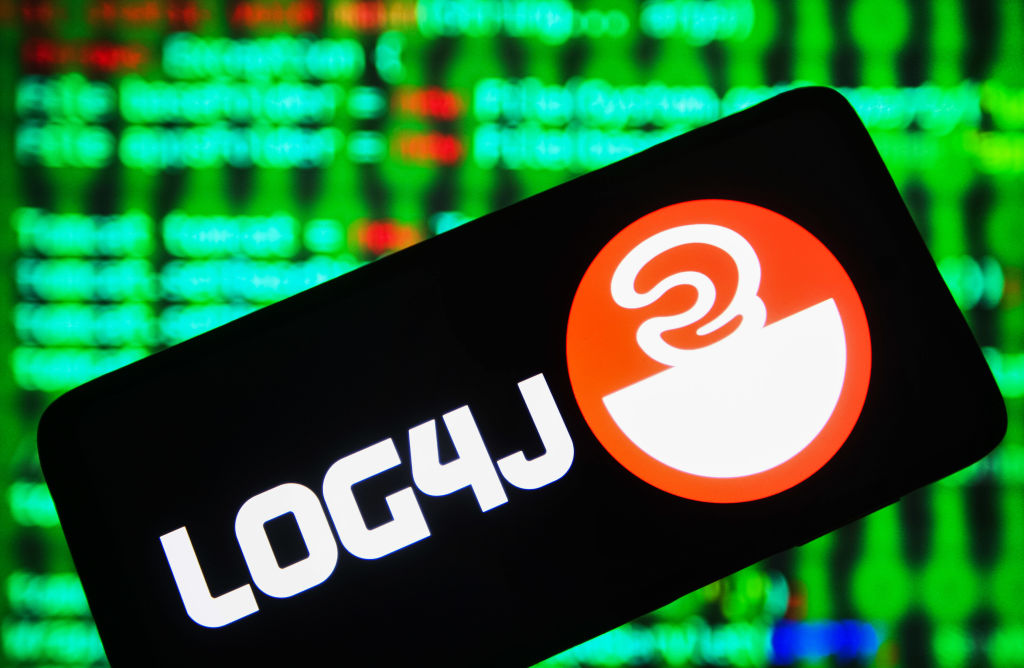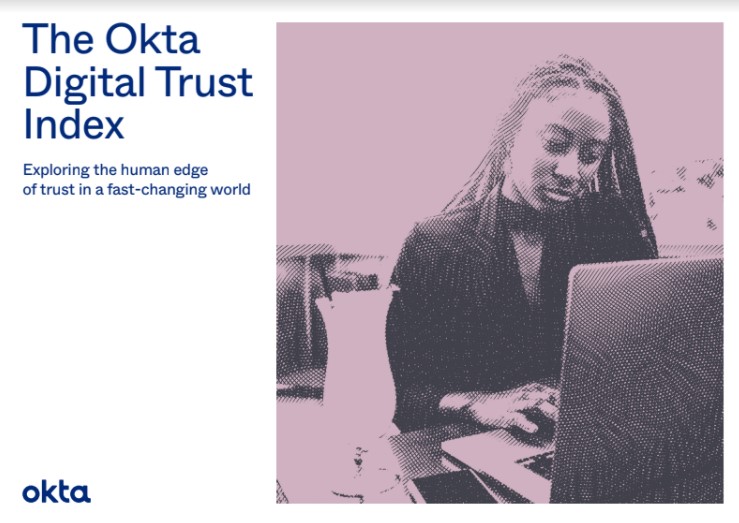Nearly half of all Log4j downloads remain critically vulnerable
The findings come as the US threatens legal action against those who fail to patch to the latest versions of the popular Java library


New research has revealed that nearly half of all Log4j downloads since the discovery of the Log4Shell vulnerability remain critically vulnerable, one month after the initial disclosure.
As of Sunday, 43% of all Log4j downloads were "coming from critically vulnerable versions", according to security researchers at Sonatype, and a little more than 44% of the downloads in the UK are thought to be exposed to the vulnerability during the same timeframe.
Since 10 December 2021 when Log4Shell was first disclosed, Log4j has been downloaded more than 10 million times. Nearly half of all of these were of unsafe versions, despite fully patched and secure versions being available at the time, Sonatype said.
'Vulnerable downloads' refers to any download of Log4j that was made from 10 December onwards and was vulnerable to Log4Shell at the time. The downloads monitored by the researchers were from The Central Repository which Sonatype describes as "the de-facto download location for dependencies for most Java programming languages" and had a total volume of more than 457 trillion downloads in 2021.
Asked why there were so many vulnerable downloads made despite safe versions being available, Ilkka Turunen, field CTO at Sonatype, said it mainly comes down to teams maintaining legacy infrastructure.
"There are several reasons as to why they might not choose to use the latest and greatest - from legacy infrastructure that has not been maintained and is pinned to old versions to lack of awareness of the need to upgrade," he told IT Pro. "In most cases, organisations have gone through a fire drill to remediate the most critical instances of issue but now face a long tail of more complex maintenance to be able to mitigate all the instances.
RELATED RESOURCE

"As with any open source, code is provided as is, and it is the responsibility of the user to know and be aware of the risks associated with it," he added. "There are legitimate use cases and sometimes legal requirements that require users to be able to build older software. Pulling known bad versions could end up being a worse antidote than the problem it aims to fix."
Sign up today and you will receive a free copy of our Future Focus 2025 report - the leading guidance on AI, cybersecurity and other IT challenges as per 700+ senior executives
The figures are high at the moment, but since the post-holiday return to work, Sonatype said it has observed companies taking steps to rectify the issue. Since 5 January, the company said it saw a 40% adoption rate to the latest versions (2.17 and 2.17.1) that are fully protected against Log4Shell.
"The fact that we are still facing such high percentages of vulnerable downloads is indicative of a much bigger problem with supply chain security," said Turunen. "If companies don’t understand what’s in their software, they’re unable to act with the requisite speed when threats arise - and in this instance, given the huge popularity of Log4j, this exposes them to significant risk.
"Fortunately, there are safe versions of the component available, so for those companies which have acted quickly, their risk has been significantly reduced. However, this needs to serve as an urgent wake-up call that businesses must understand what’s in their software, where dependencies lie, and not leverage vulnerable components when safe ones are available."
US firms, in particular, are advised to patch to the latest versions of Log4j since last week the Federal Trade Commission (FTC) said it would pursue legal action against companies failing to patch against Log4Shell due to the high risk of data breaches occurring as a result of exploiting vulnerable systems.
The strong stance on the matter from the FTC is indicative of the US government's recent clampdown on cyber security vulnerabilities. The US' Cyber Security and Infrastructure Security Agency (CISA) set deadlines for all federal agencies to patch hundreds of security vulnerabilities in November 2021.
The severity of the Log4Shell vulnerability, and the current cyber security landscape in general, is echoed in research published by Check Point Research on Monday which revealed cyber attacks reached new highs during Q4 2021, driven largely by the number of attempts to exploit Log4Shell.
During Q4 2021, Check Point Research noted there was an all-time peak in weekly cyber attacks with an average of more than 900 per organisation. Researchers also observed a 50% increase in attacks year on year for the entirety of 2021 compared to 2020's figures.

Connor Jones has been at the forefront of global cyber security news coverage for the past few years, breaking developments on major stories such as LockBit’s ransomware attack on Royal Mail International, and many others. He has also made sporadic appearances on the ITPro Podcast discussing topics from home desk setups all the way to hacking systems using prosthetic limbs. He has a master’s degree in Magazine Journalism from the University of Sheffield, and has previously written for the likes of Red Bull Esports and UNILAD tech during his career that started in 2015.
-
 Microsoft wants to replace C and C++ with Rust by 2030
Microsoft wants to replace C and C++ with Rust by 2030News Windows won’t be rewritten in Rust using AI, according to a senior Microsoft engineer, but the company still has bold plans for embracing the popular programming language
-
 Google drops $4.75bn on data center and energy firm Intersect
Google drops $4.75bn on data center and energy firm IntersectNews The investment marks the latest move from Google to boost its infrastructure sustainability credentials
-
 Two Fortinet vulnerabilities are being exploited in the wild – patch now
Two Fortinet vulnerabilities are being exploited in the wild – patch nowNews Arctic Wolf and Rapid7 said security teams should act immediately to mitigate the Fortinet vulnerabilities
-
 Everything you need to know about Google and Apple’s emergency zero-day patches
Everything you need to know about Google and Apple’s emergency zero-day patchesNews A serious zero-day bug was spotted in Chrome systems that impacts Apple users too, forcing both companies to issue emergency patches
-
 Security experts claim the CVE Program isn’t up to scratch anymore — inaccurate scores and lengthy delays mean the system needs updated
Security experts claim the CVE Program isn’t up to scratch anymore — inaccurate scores and lengthy delays mean the system needs updatedNews CVE data is vital in combating emerging threats, yet inaccurate ratings and lengthy wait times are placing enterprises at risk
-
 IBM AIX users urged to patch immediately as researchers sound alarm on critical flaws
IBM AIX users urged to patch immediately as researchers sound alarm on critical flawsNews Network administrators should patch the four IBM AIX flaws as soon as possible
-
 Critical Dell Storage Manager flaws could let hackers access sensitive data – patch now
Critical Dell Storage Manager flaws could let hackers access sensitive data – patch nowNews A trio of flaws in Dell Storage Manager has prompted a customer alert
-
 Flaw in Lenovo’s customer service AI chatbot could let hackers run malicious code, breach networks
Flaw in Lenovo’s customer service AI chatbot could let hackers run malicious code, breach networksNews Hackers abusing the Lenovo flaw could inject malicious code with just a single prompt
-
 Industry welcomes the NCSC’s new Vulnerability Research Initiative – but does it go far enough?
Industry welcomes the NCSC’s new Vulnerability Research Initiative – but does it go far enough?News The cybersecurity agency will work with external researchers to uncover potential security holes in hardware and software
-
 Hackers are targeting Ivanti VPN users again – here’s what you need to know
Hackers are targeting Ivanti VPN users again – here’s what you need to knowNews Ivanti has re-patched a security flaw in its Connect Secure VPN appliances that's been exploited by a China-linked espionage group since at least the middle of March.